
The physiology of a hen changes once she has laid her clutch and she feels ready to incubate the eggs. The first noticeable sign that a hen is broody is when she ceases to lay as her body cannot carry out two different actions and to incubate the eggs she will need to concentrate on what is needed to accomplish that. Hormonal changes take place in her body, with the release of prolactin by the pituitary gland. When levels of this hormone increase it inhibits the production of gonadotropin, which stimulates ovarian follicles, which make up eggs. Her metabolism will slow and her temperature at this stage still be 37.7 degrees C. Into the second week of incubation her breast temperature will rise to 44 degrees C and during the third week gradually fall to 37 C. During the broody period she will not wish to move from her nest and appear in a trance.
KEEP COLLECTING THE EGGS
This story is from the {{IssueName}} edition of {{MagazineName}}.
Start your 7-day Magzter GOLD free trial to access thousands of curated premium stories, and 9,000+ magazines and newspapers.
Already a subscriber ? Sign In
This story is from the {{IssueName}} edition of {{MagazineName}}.
Start your 7-day Magzter GOLD free trial to access thousands of curated premium stories, and 9,000+ magazines and newspapers.
Already a subscriber? Sign In
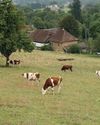
How to Buy a Smallholding in France- Long-time smallholder Lorraine Turnbull looks at the practicalities of moving to rural France
Aspiring smallholders are continually thwarted by the prices of smallholdings and property with land located within the UK. Even the humblest croft in Scotland comes with a substantial price tag and conditions which would make even an adventurous wannabee consider carefully. But all is not lost. For those willing to take the adventure of a lifetime, there is always Europe, and one of the most popular places is France.

Meet the Bournemouth goats and their supporters
These capricious animals are hard workers preserving the natural habitat
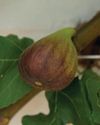
Still warm enough to sit outside with a Pizza
Henrietta Balcon uses fresh figs to create an unusual dish at Harvest time
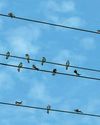
Goodbye to the birds of spring and summer
If you look and listen you might be able to see them preparing to leave says The RSPB
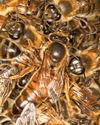
Get ready for the colder weather in the warmth of late summer
Claire Waring advises on doing the best to make sure your colonies survive until next spring
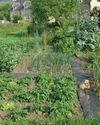
Preparing the Veg Patch for Winter
Lee Senior says, a well-run plot can excitingly continue to produce good quality, tasty, fresh food for much of winter
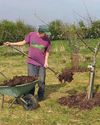
Time to prepare to plant your orchard
Wade Muggleton, smallholder and author of The Orchard Book, shares his practical experience so you can create your own fruit collection
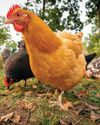
Choosing feed for the autumn
As autumn approaches, Joanna Palmer, nutritionist at the Smallholder Range, offers advice on choosing the right feed to support your adult birds through their annual moult and ensure your young birds grow and finish well at this time of the year.
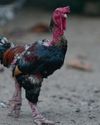
Vet advice from an experienced poultry vet
Reflecting on how much the humble hen has helped people world wide plus advice on stopping the scourge of red mite
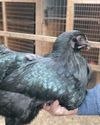
Give your hens some support
Paul Donovan looks at the right and wrong ways of handling birds